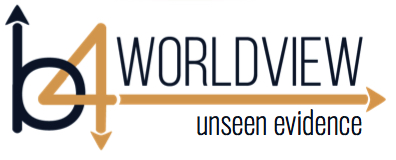
Key Thought for this session:
“If any outcome of life is acceptable to me, then any path will get me there.”
There are reasons absolute truth bothers people. There is something about relative truth that feels right. Tolerance of what others believe seems virtuous. We want to think everyone should be able to believe what they want because believing there is only one right way feels prideful, arrogant, judgmental, and closed minded. Yet, do you ever catch yourself bristling, or even dismissive, when someone disagrees with you? Do you think and sometimes say out loud or to yourself, “Well, that’s your opinion”?
Don’t we often feel “I have it right and you are wrong”?
We instinctively know that we and everyone else have biases and we’ve already studied some of these:
Confirmation Bias
Stereotyping
Attribution Bias
Fairness
...all of which make us humans SUBJECTIVE.
Biases entrench us in what we believe, kind of seducing us to find support for our view as truth and rejecting opposing arguments. Do you remember the discussions we had earlier about human nature? Do you recall how we explained that our nature is subjective? Each of us knows instinctively that our worldview is subject to a host of biases. Does this leave you with a sense that you cannot really defend what you believe to be right and the other person wrong? To take a stance that “I am right,” so to speak, actually requires others to trust your opinion, and that can often feel awkward.
So, with an increasing awareness that our feelings and thoughts have all these flaws, comes a decrease in our self-confidence and leaves us with an increasing willingness to be tolerant of others’ beliefs. Many ageless philosophies around the world, like Jainism, promote relativism as a primary contributor to a prosperous community. Relativism feels virtuous.